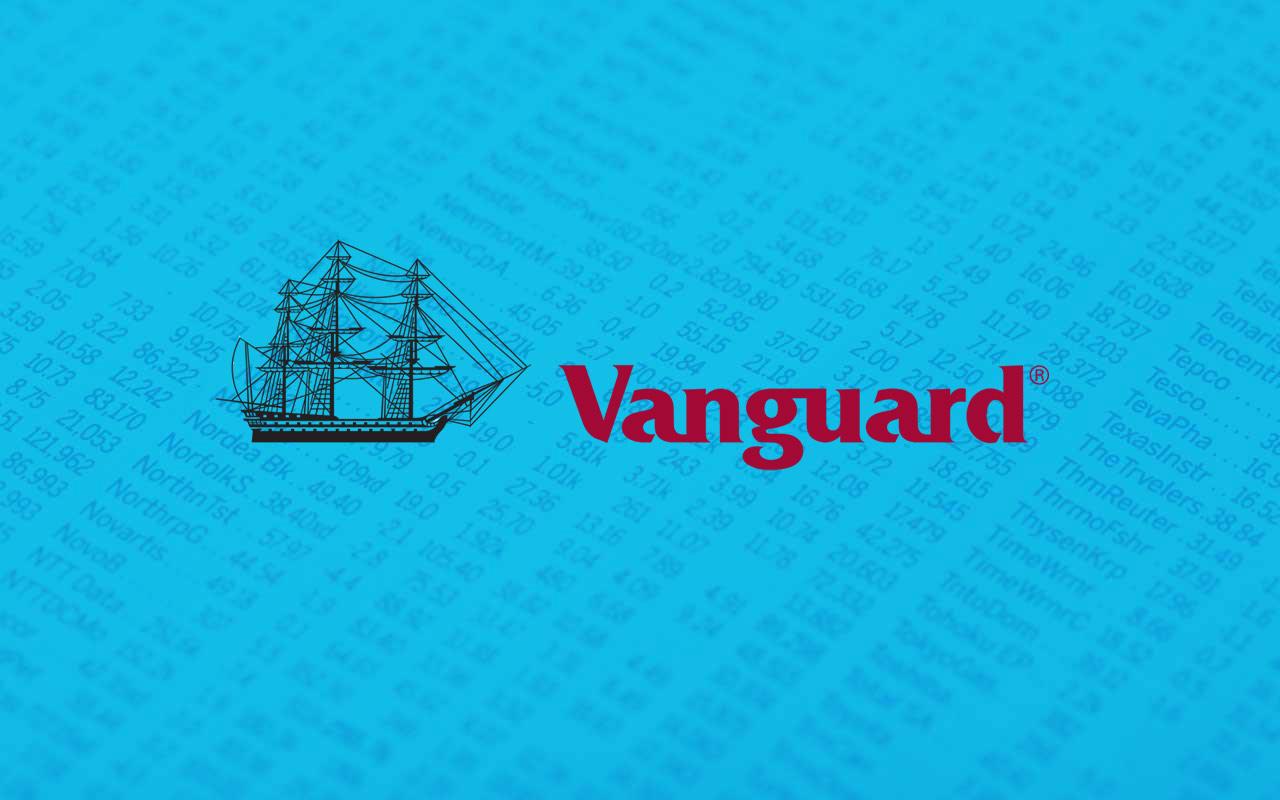11 Best Vanguard Index Funds to Buy for Low-Cost Quality


Profit and prosper with the best of Kiplinger's advice on investing, taxes, retirement, personal finance and much more. Delivered daily. Enter your email in the box and click Sign Me Up.
You are now subscribed
Your newsletter sign-up was successful
Want to add more newsletters?

Delivered daily
Kiplinger Today
Profit and prosper with the best of Kiplinger's advice on investing, taxes, retirement, personal finance and much more delivered daily. Smart money moves start here.

Sent five days a week
Kiplinger A Step Ahead
Get practical help to make better financial decisions in your everyday life, from spending to savings on top deals.

Delivered daily
Kiplinger Closing Bell
Get today's biggest financial and investing headlines delivered to your inbox every day the U.S. stock market is open.

Sent twice a week
Kiplinger Adviser Intel
Financial pros across the country share best practices and fresh tactics to preserve and grow your wealth.

Delivered weekly
Kiplinger Tax Tips
Trim your federal and state tax bills with practical tax-planning and tax-cutting strategies.

Sent twice a week
Kiplinger Retirement Tips
Your twice-a-week guide to planning and enjoying a financially secure and richly rewarding retirement

Sent bimonthly.
Kiplinger Adviser Angle
Insights for advisers, wealth managers and other financial professionals.

Sent twice a week
Kiplinger Investing Weekly
Your twice-a-week roundup of promising stocks, funds, companies and industries you should consider, ones you should avoid, and why.

Sent weekly for six weeks
Kiplinger Invest for Retirement
Your step-by-step six-part series on how to invest for retirement, from devising a successful strategy to exactly which investments to choose.
Vanguard index funds are among the market’s greatest champions of low-cost investing.
The company is a pioneer, launching the first index fund – the Vanguard 500 Index Fund (VFIAX), which provided inexpensive access to the Standard & Poor’s 500-stock index – more than four decades ago.
Since then, Vanguard has introduced a slew of low-cost index mutual funds and exchange-traded funds (ETFs) that have saved investors hundreds of billions of dollars in fees throughout the years. The best Vanguard index funds aren’t just going to save you money on the fee front, however. They’ll also provide faithful exposure to asset classes and investing strategies to profit from for years to come. Take a look.
Data is as of May 11, 2018. Yields represent the trailing 12-month yield unless otherwise noted. Mutual-fund alternatives are included for each recommended Vanguard ETF.

Vanguard Dividend Appreciation ETF
- Type: Dividend growth
- Market value: $27.0 billion
- Dividend yield: 1.9%
- Expenses: 0.08%
The Vanguard Dividend Appreciation ETF (VIG, $100.68) is an ETF that’s geared toward dividend growth. The fund tracks the NASDAQ US Dividend Achievers Select Index, which is a collection of roughly 180 dividend stocks that have improved their annual payments for at least 10 years.
Unsurprisingly, that portfolio is chock full of blue chips that have long held top positions in their respective industries, including the likes of Walmart (WMT), Johnson & Johnson (JNJ) and Microsoft (MSFT).
A bit more surprising to some investors, however, is the yield. Despite the “dividend” designation, VIG doles out a yield below 2% at the moment.
Many dividend growers do not, in fact, have high yields – and that’s OK. Investors should think about dividend growth almost like a screen for quality. The ability to raise dividends without interruption for at least a decade demonstrates financial stability and cash generation. Plus, dividend growth often is accompanied by rising share prices, which naturally results in a lower yield. Also remember that as the fund’s holdings expand their payouts over time, your yield on cost – the yield you receive based on the price you purchased the ETF at – will go up, too.
Note: Vanguard Dividend Appreciation also is available as Admiral Shares (VDADX) and Investor Shares (VDAIX) index mutual funds.

Vanguard Emerging Markets Government Bond ETF
- Type: Emerging-market domestic debt
- Market value: $991.2 million
- SEC yield*: 4.5%
- Expenses: 0.32%
The U.S. has some of the “safest” bonds on the planet, and investors typically are willing to settle for lower yields on America’s debt for that relative security. However, so-called emerging economies such as Mexico, Russia and India tend to feature much riskier debt thanks to factors such as geopolitical concerns, higher risk of corruption and less established markets. The flip side? Their bonds often must deliver higher yields to get investors to bite.
But there are ways of mitigating this risk, including buying index funds that hold numerous debt issues from several countries. That way, even if one country’s bonds tank, it won’t cripple the investment the way it would had an investor gone all in on that single country.
The Vanguard Emerging Markets Government Bond (VWOB, $75.40) offers exactly this kind of exposure, providing access to a basket of more than a thousand sovereign bonds across dozens of countries. Larger emerging markets such as China (16.7%), Mexico (7.8%) and Brazil (6.7%) have a greater presence in VWOB, but its wide holdings even touch the likes of Mongolia, Jamaica and Armenia.
Despite the relatively higher risk, the majority of VWOB’s holdings (63%) have investment-grade credit ratings – just considerably lower than America’s rating. That in turn helps prop up the fund’s yield, which at more than 4% is better than what’s on offer out of most American bond funds.
Note: Vanguard Emerging Markets Government Bond also is available as Admiral Shares (VGAVX) and Investor Shares (VGOVX) index mutual funds.
* SEC yield reflects the interest earned after deducting fund expenses for the most recent 30-day period. SEC yield is a standard measure for bond funds.

Vanguard FTSE All-World ex-US Small-Cap ETF
- Type: International small-cap
- Market value: $5.0 billion
- Dividend yield: 2.8%
- Expenses: 0.13%
The Vanguard FTSE All-World ex-US Small-Cap ETF (VSS, $120.22) is one of several Vanguard index funds that have earned a spot among the Kiplinger ETF 20 – a group of 20 of the market’s best ETFs.
This Vanguard index ETF, as the name implies, invests in small-cap stocks across the planet, but excludes American companies to give investors purely international exposure.
Small-cap stocks are naturally riskier given that they often have narrower product lines and less access to capital than their large-cap brethren. But VSS helps mitigate this risk by investing in more than 3,600 stocks across dozens of countries, with the top holding – Canadian mining company First Quantum Minerals – representing a mere 0.4% of the portfolio.
From a country perspective, VSS is most heavily weighted in Japanese stocks (15.9% of the portfolio), with double-digit holdings in Canada and the United Kingdom (11.9% each). More broadly, 37% of the fund is invested in developed Europe, 29% in developed-Pacific countries, 12% in North America and about 21% in emerging markets, with the fractional rest in the Middle East or “Other.”
Note: Vanguard FTSE All-World ex-US Small-Cap also is available as an Investor Shares (VSFVX) index mutual fund.

Vanguard High Dividend Yield ETF
- Type: Dividend stock
- Market value: $20.6 billion
- Dividend yield: 3.0%
- Expenses: 0.08%
While the Vanguard Dividend Appreciation ETF focuses on dividend-growth companies, the Vanguard High Dividend Yield ETF (VYM, $83.28) puts an emphasis on high current yield.
Relatively speaking, that is.
The VYM yields about 3% at present, which certainly is better than the 1.9% on S&P 500-tracking funds such as the Vanguard S&P 500 ETF (VOO). At the same time, it is hardly a robust yield compared to other high-yield assets such as real estate investment trusts (REITs), master limited partnerships (MLPs) and business development companies (BDCs), which commonly yield anywhere between 5% and 9%.
Still, investors looking for a portfolio of lower-risk, mostly blue-chip stocks with relatively higher yield will find it in the VYM. The portfolio is roughly 380 stocks strong, including large-cap dividend names such as AT&T (T), Exxon Mobil (XOM) and Intel (INTC).
Note: Vanguard High Dividend Yield also is available as an Investor Shares (VHDYX) index mutual fund.

Vanguard Information Technology ETF
- Type: Sector (technology)
- Market value: $19.6 billion
- Dividend yield: 1.0%
- Expenses: 0.1%
Technology is increasingly shaping the lives of every man, woman and child in the U.S. and abroad – cloud technology, robots and augmented reality are just some of the many tech trends that are oozing their way into everyday life. Moreover, the world is becoming increasingly interwoven. Forget computers or even smartphones and tablets – TVs, refrigerators and even toasters are becoming tethered as we connect just about everything to the internet.
The technology sector is where most of these advancements are being made, which means there’s plenty of potential for continued growth in the years ahead for tech-focused ETFs. Enter the Vanguard Information Technology ETF (VGT, $181.44), which invests in roughly 358 companies classified as “information technology” firms.
That covers a wide area – everything from systems software to semiconductors to internet services and data processing. And the top holdings at the moment are a who’s who of America’s most well-known and influential companies – iPhone maker Apple (AAPL); Windows and Word purveyor Microsoft (MSFT); Alphabet (GOOGL), parent of search king Google; and Facebook (FB), the world’s largest social media network.
But investors should know that this and several other sector funds across the market will be changing soon. The benchmark indices for VGT and other ETFs will change later this year as a result of shifts in the Global Industry Classification Standard (GICS), which essentially determines which companies go in which sectors and industries. For instance, Facebook and Alphabet will be moved into the telecommunications sector, and thus eventually will be held by the Vanguard Communications Services ETF (VOX) instead of VGT.
Note: Vanguard Information Technology also is available as an Admiral Shares (VITAX) index mutual fund.

Vanguard International High Yield ETF
- Type: International dividend stock
- Market value: $957.3 million
- Dividend yield: 3.3%
- Expenses: 0.32%
The Vanguard International High Yield ETF (VYMI, $66.63) is essentially the better-traveled sister fund of the Vanguard High Dividend Yield ETF. Like VYM, VYMI invests in stocks with above-average dividend yields – it just does so across many countries that aren’t the United States of America.
Like many blue-chip international funds, the VYMI is heavily invested in so-called developed markets – countries with more mature economies and stable markets, such as Japan, Australia and much of Western Europe. In fact, a little more than half of the fund’s $960 million in assets is tied up in developed-Europe stocks, with another 19% in developed-Pacific companies. Only about 20% of the fund is invested in emerging-market countries such as China.
While many sectors are represented, consumer staples and pharma stocks are well-represented among the VYMI’s top holdings. Swiss foods giant Nestle (NSRGY), British-Dutch consumer-goods giant Unilever (UN), Swiss pharmaceutical multinational Novartis (NVS) and British American Tobacco (BTI) command some of the fund’s highest weights.
Investors also should note that international blue chips can sometimes be more generous than their American counterparts, reflected by YVMI’s 3.3% yield, which outdoes VYM by a bit.
Note: Vanguard International High Yield also is available as Admiral Shares (VIHAX) and Investor Shares (VIHIX) index mutual funds.

Vanguard Real Estate ETF
- Type: Real estate (REIT)
- Market value: $30 billion
- Dividend yield: 4.8%
- Expenses: 0.12%
Real estate investment trusts (REITs) represent a special type of corporate structure that allows companies that own and operate real estate to enjoy certain federal tax breaks as long as they return at least 90% of their taxable income back to shareholders in the form of dividends.
As a result, REITs are beloved by the income-hunting community thanks to their often larger-than-average yields.
The Vanguard Real Estate ETF (VNQ, $77.94) is a wide collection of roughly 180 of these stocks, covering just about every corner of the real estate world. The VNQ boasts double-digit weightings in specialized (23%), retail (17%), residential (16%), office (12%) and health care (10%) REITs, as well as smatterings of hotel-and-resort operators, industrial real estate players and other types.
You can see that diversity in the VNQ’s top holdings, which include mall operator Simon Property Group (SPG), logistics-minded REIT Prologis (PLD), data-center owner Equinix (EQIX) and self-storage king Public Storage (PSA).
Note: Vanguard Real Estate also is available as Admiral Shares (VGSLX) and Investor Shares (VGSIX) index mutual funds.

Vanguard Small-Cap Value ETF
- Type: Small-cap stock
- Market value: $13.0 billion
- Dividend yield: 1.9%
- Expenses: 0.07%
When President Donald Trump signed into law a massive corporate tax cut at the end of 2017, he was doing most American businesses a huge favor – but small-cap companies (typically those between $300 million and $2 billion in market value) are really set up to enjoy the windfall from this business-friendly legislation.
American large-cap companies often have operations in other countries, and as a result, their effective tax rates are lower than the previous corporate cap of 35%. However, most small-cap companies derive little to no revenues abroad, and thus typically pay the full 35% or pretty close to it. As a result, when corporate rates were dropped to 21%, big multinationals benefitted – but more modestly sized companies earned an even deeper cut on average.
Moreover, small caps’ reliance on domestic spending means they are better positioned to enjoy the fruits of continued economic growth as America’s recovery continues.
Enter the Vanguard Small-Cap Value ETF (VBR, $133.22), which invests in about 880 small companies that exhibit various value characteristics, such as low price-to-earnings ratios. This fund is heavily invested in financial stocks, which comprise almost a third of VBR’s assets under management. Industrials (20%) and consumer services (11%) are the only other double-digit weights. Holdings include the likes of Idex (IEX), which makes pumps, flow meters and other fluidics products, as well as steel producer Steel Dynamics (STLD).
Note: Vanguard Small-Cap Value also is available as Admiral Shares (VSIAX) and Investor Shares (VISVX) index mutual funds.

Vanguard Short-Term Treasury ETF
- Type: Short-term U.S. government bond
- Market value: $2.3 billion
- SEC yield: 2.4%
- Expenses: 0.07%
There are many instances in which active management makes more sense than indexing. For instance, agile fund managers can typically do well in areas such as longer-term bond funds, where they can make calculated purchases to anticipate future yield movements. Active managers also may better navigate the fragmented market of municipal bonds and better avoid credit risk.
A few simple strategies are perfectly suited for index funds, however. For instance, little nuance is needed to invest in a basket of short-term Treasuries, where the bonds are far less sensitive to changes in interest rates.
The Vanguard Short-Term Treasury ETF (VGSH, $59.75) provides exactly this kind of exposure, investing in roughly 90 U.S. Treasury bonds with maturities between one and three years. America boasts one of the best credit ratings on the planet, which means there’s very little default risk – and there’s even less risk given that all of VGSH’s bonds will mature in no more than three years.
Short-term strategies like this are typically used by investors looking to “hide out” in times of stock-market volatility. Rather than going to cash, investors can instead put their money in funds like VGSH and typically expect little volatility while also collecting a modest amount of income.
Note: Vanguard Short-Term Treasury also is available as an Admiral Shares (VSBSX) index mutual fund.

Vanguard Total International Stock ETF
- Type: International all-cap equity
- Market value: $11.5 billion
- Dividend yield: 2.7%
- Expenses: 0.11%
If you want international diversification in your stock portfolio, it’s difficult to find a much more comprehensive solution than Kip ETF 20 member Vanguard Total International Stock ETF (VXUS, $56.94).
The VXUS is a whopper of a fund, holding about 6,350 international stocks across dozens of countries. Most of the portfolio is developed-nation in nature, with 42% in Europe and another 30% in mature countries in the Pacific. But there is a 21% allocation to emerging markets at the moment, which should help provide a little more “oomph” on the growth front.
The fund is lopsided in its country exposure, with 17.6% of its assets dedicated to Japanese stocks and another 12% to British companies. But its top holdings show off a little bit more diversity, featuring Chinese internet conglomerate Tencent (TCEHY), Korean tech giant Samsung (SSNLF) and Japanese automaker Toyota (TM).
While this Vanguard index fund covers stocks of all sizes, the median market cap is still well within large-cap range. Moreover, a heavy contingent of dividend payers helps support a 2.7% yield that’s better than most broad U.S. funds.
Note: Vanguard Total International Stock also is available as Admiral Shares (VTIAX) and Investor Shares (VGTSX) index mutual funds.

Vanguard Total Stock Market ETF
- Type: Domestic all-cap equity
- Market value: $94.6 billion
- Dividend yield: 1.7%
- Expenses: 0.04%
- Vanguard Total Stock Market ETF (VTI, $139.08), another Kip ETF 20 pick, is one of the largest Vanguard index funds at nearly $95 billion in assets under management. It’s also one of the most comprehensive, holding shares in more than 3,630 American companies of every size and stripe.
There’s no subtlety in this one. Essentially, if you’re looking for a single fund that can give you access to everything the U.S. has to offer – from large-cap value to small-cap growth – the VTI offers it. And it does so for a relative song, priced at just 4 basis points; in other words, an investor would pay just $4 annually for every $10,000 invested.
Investors should understand that just because VTI invests in just about everything, that doesn’t mean it’s necessarily balanced. This ETF is market cap-weighted, which means the largest stocks make up the biggest percentages of the fund. So VTI still leans heavily to the large-cap side, led by top holdings Apple, Microsoft and Google parent Alphabet.
Note: Vanguard Total International Stock also is available as Admiral Shares (VTSAX) and Investor Shares (VTSMX) index mutual funds.
Profit and prosper with the best of Kiplinger's advice on investing, taxes, retirement, personal finance and much more. Delivered daily. Enter your email in the box and click Sign Me Up.
Kyle Woodley is the Editor-in-Chief of WealthUp, a site dedicated to improving the personal finances and financial literacy of people of all ages. He also writes the weekly The Weekend Tea newsletter, which covers both news and analysis about spending, saving, investing, the economy and more.
Kyle was previously the Senior Investing Editor for Kiplinger.com, and the Managing Editor for InvestorPlace.com before that. His work has appeared in several outlets, including Yahoo! Finance, MSN Money, Barchart, The Globe & Mail and the Nasdaq. He also has appeared as a guest on Fox Business Network and Money Radio, among other shows and podcasts, and he has been quoted in several outlets, including MarketWatch, Vice and Univision. He is a proud graduate of The Ohio State University, where he earned a BA in journalism.
You can check out his thoughts on the markets (and more) at @KyleWoodley.
-
 Ask the Tax Editor: Federal Income Tax Deductions
Ask the Tax Editor: Federal Income Tax DeductionsAsk the Editor In this week's Ask the Editor Q&A, Joy Taylor answers questions on federal income tax deductions
-
 States With No-Fault Car Insurance Laws (and How No-Fault Car Insurance Works)
States With No-Fault Car Insurance Laws (and How No-Fault Car Insurance Works)A breakdown of the confusing rules around no-fault car insurance in every state where it exists.
-
 7 Frugal Habits to Keep Even When You're Rich
7 Frugal Habits to Keep Even When You're RichSome frugal habits are worth it, no matter what tax bracket you're in.
-
 Stocks Sink With Alphabet, Bitcoin: Stock Market Today
Stocks Sink With Alphabet, Bitcoin: Stock Market TodayA dismal round of jobs data did little to lift sentiment on Thursday.
-
 Dow Leads in Mixed Session on Amgen Earnings: Stock Market Today
Dow Leads in Mixed Session on Amgen Earnings: Stock Market TodayThe rest of Wall Street struggled as Advanced Micro Devices earnings caused a chip-stock sell-off.
-
 Nasdaq Slides 1.4% on Big Tech Questions: Stock Market Today
Nasdaq Slides 1.4% on Big Tech Questions: Stock Market TodayPalantir Technologies proves at least one publicly traded company can spend a lot of money on AI and make a lot of money on AI.
-
 Fed Vibes Lift Stocks, Dow Up 515 Points: Stock Market Today
Fed Vibes Lift Stocks, Dow Up 515 Points: Stock Market TodayIncoming economic data, including the January jobs report, has been delayed again by another federal government shutdown.
-
 Stocks Close Down as Gold, Silver Spiral: Stock Market Today
Stocks Close Down as Gold, Silver Spiral: Stock Market TodayA "long-overdue correction" temporarily halted a massive rally in gold and silver, while the Dow took a hit from negative reactions to blue-chip earnings.
-
 Nasdaq Drops 172 Points on MSFT AI Spend: Stock Market Today
Nasdaq Drops 172 Points on MSFT AI Spend: Stock Market TodayMicrosoft, Meta Platforms and a mid-cap energy stock have a lot to say about the state of the AI revolution today.
-
 S&P 500 Tops 7,000, Fed Pauses Rate Cuts: Stock Market Today
S&P 500 Tops 7,000, Fed Pauses Rate Cuts: Stock Market TodayInvestors, traders and speculators will probably have to wait until after Jerome Powell steps down for the next Fed rate cut.
-
 S&P 500 Hits New High Before Big Tech Earnings, Fed: Stock Market Today
S&P 500 Hits New High Before Big Tech Earnings, Fed: Stock Market TodayThe tech-heavy Nasdaq also shone in Tuesday's session, while UnitedHealth dragged on the blue-chip Dow Jones Industrial Average.

